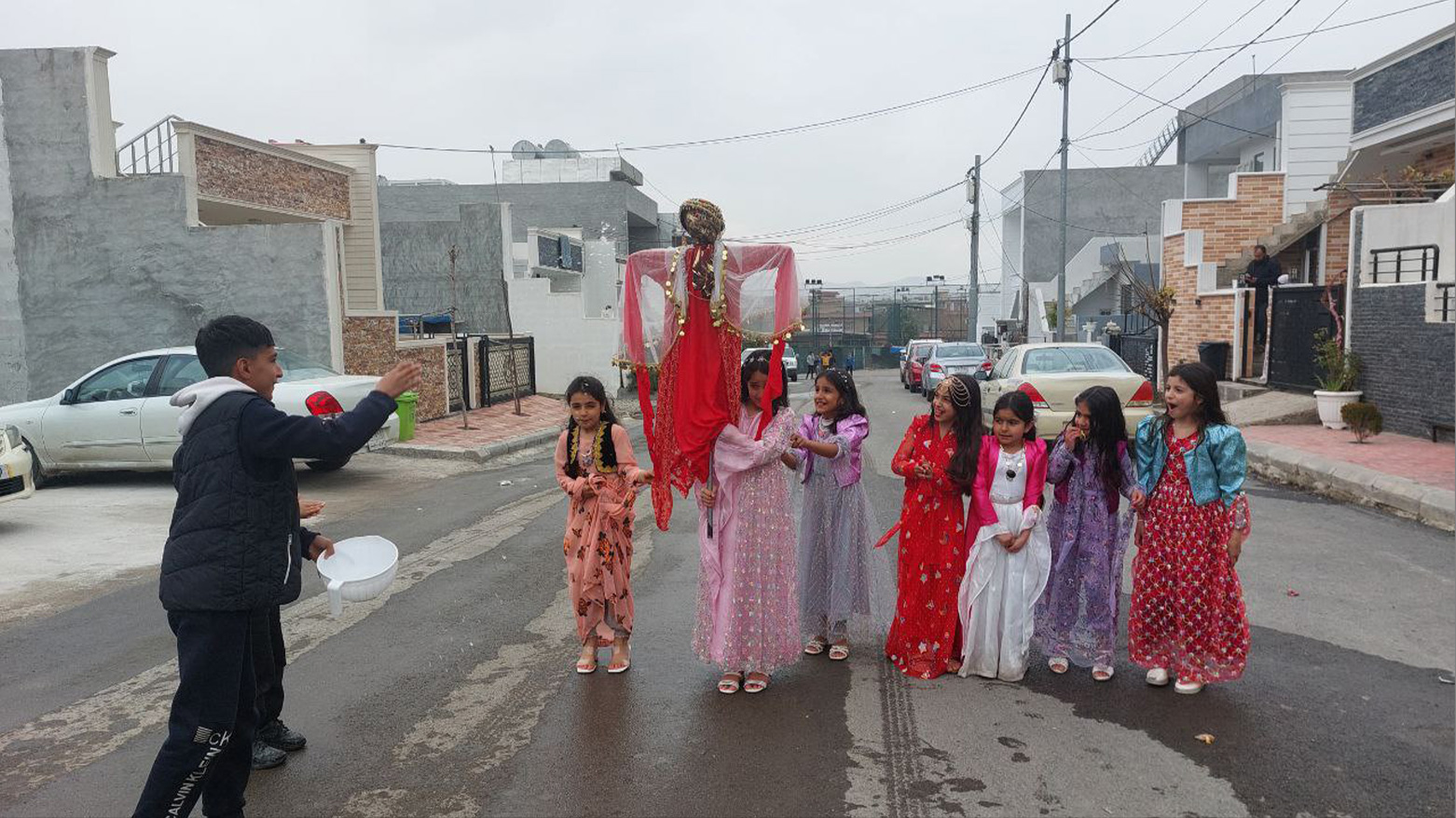Traditional Kurdish ‘Rain Bride’ Ritual Resurfaces Amid Regional Drought Concerns
Historical records, including Thomas Bois's comprehensive 1966 study of Kurdish customs, record this ritual as part of a broader tapestry of Kurdish spiritual practices involving natural phenomena.

Jan. 11, 2025
ERBIL (Kurdistan24) - As the Kurdistan Region faces noticeable climate challenges, an ancient rain-summoning ritual known as "Bûke Barane" (Rain Bride) has gained renewed meaning, merging centuries-old Kurdish spiritual traditions with contemporary environmental concerns.
Historical records, including Thomas Bois's comprehensive 1966 study of Kurdish customs, record this ritual as part of a broader tapestry of Kurdish spiritual practices involving natural phenomena.
The ceremony, which precedes the region's adoption of Islam, signifies one of numerous traditional Kurdish approaches to environmental challenges, particularly drought.
As highlighted by regional meteorological data, the Kurdistan Region has undergone a 30% decline in annual rainfall over the past decade.
This modern crisis has resulted in a revival of traditional ecological practices, with communities across Kurdistan turning to traditional rites alongside contemporary water management strategies.
The ceremony characteristically starts in the late afternoon, when young partakers select one member to carry the "Rain Bride" - a large puppet or effigy customarily made from wood in the shape of a cross and dressed in traditional Kurdish women's clothing.
The practice, as recorded by both contemporary observers and historical documents, includes a procession through neighborhood streets, with participants chanting the ancestral verse: "Heyaran û Meyaran xwaye bîkate baran bo feqîr û hejaran" (O beloved ones, our beloved ones, may God turn it into rain, for the poor and needy).
Bois's historical research explains that this ritual is part of a larger complex of Kurdish rain-summoning traditions.
In some regions, women would attach themselves to ploughs and symbolically plough stream waters, while in others, communities would get together around ancient trees for ceremonial meals.
In Kirkuk, a variation of the ritual involved women gathering under rain spouts after distributing food to the poor.
We could explain that these rituals demonstrate the Kurdish people's deep understanding of their environment and the critical relationship between community action and ecological balance.
The persistence of Bûke Barane proves how traditional ecological knowledge continues to resonate in an era of climate change.
This rhythmic prayer, then, resonances through the streets, typically beginning after afternoon prayers and continuing until dusk.
Local residents partake by sprinkling water on the Rain Bride from their rooftops and doorways, symbolically invoking rainfall.
Many also donate food and essential items to be distributed among the less fortunate, believing that charitable acts might help secure divine blessing for rain.
What makes Bûke Barane mostly relevant today is its embodiment of community solidarity in the face of environmental challenges.
The ritual's persistence into the modern era, alongside other traditional Kurdish customs recorded by Bois involving sacred trees, springs, and natural phenomena, exemplifies the lasting connection between Kurdish cultural heritage and environmental stewardship.
As the region faces growing climate change concerns, these ancient practices provide both cultural continuity and a framework for community-based environmental response.
Regional authorities report that traditional water management practices and rainfall-related customs have become increasingly central to local discussions about climate adaptation, underlining the continued dialogue between ancient wisdom and modern environmental challenges in Kurdish society.